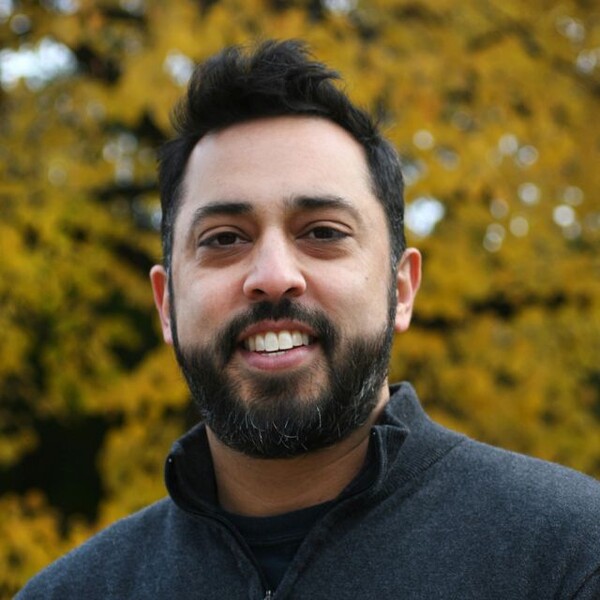Darren Kadis
PhD

Research Synopsis
I study brain-behaviour relationships and neuroplasticity in healthy children and those with known neurological injury. Specifically, my research is focused on data-driven characterization of the anatomy and physiology of the paediatric language network. I am interested in how the brain supports language acquisition early in life, how the architecture and dynamics of the language network change in normal development, and how the network is impacted by perinatal or childhood injury.
In my research, I use multiple investigative techniques, including invasive procedures (e.g., direct electrocortical stimulation), and newer, noninvasive neuroimaging approaches (e.g., structural MRI, fMRI, diffusion imaging, and magnetoencephalography or MEG). I work most frequently with MEG, analyzing the oscillatory and connectivity dynamics that support language and other higher-cognitive functions in childhood, though I frequently calls upon other modalities and behavioural assessments to provide complementary information.
Keywords:
Network neuroscience, MEG, MRI, fMRI, diffusion weighted imaging or DWI, EEG, TMS / rTMS, development, epilepsy
Methods Used:
MEG, MRI (structural, diffusion, fMRI), stimulation mapping (direct electrocortical, transcranial magnetic stimulation, or TMS), EEG, neuropsychological assessment
Equipment Used:
151- and 275-channel CTF MEG, 3.0T Philips and Siemens MRI, high-density EEG and intracranial recordings, Nexstim TMS/rTMS
Recent Publications
Recent works by trainees or former trainees (underlined):
Barnes-Davis, M. E., Merhar, S. L., Holland, S. K., Parikh, N. A., & Kadis, D. S. (2021). Extremely preterm children demonstrate hyperconnectivity during verb generation: a multimodal approach. NeuroImage Clinical, 30, 102589. DOI: 10.1016/j.nicl.2021.102589
Sharma, V. V., Vannest, J., Greiner, H. M., Fujiwara, H., Tenney, J. R., Williamson, B. J., & Kadis, D. S. (2021). Beta synchrony for expressive language lateralizes to the right hemisphere in development. Scientific Reports, 11(1):3949. DOI: 10.1038/s41598-021-83373-z
Williamson, B. J., De Domenico, M., & Kadis, D. S. (2021). Multilayer connector hub mapping reveals key brain regions supporting expressive language. Brain Connectivity, 11(1):45-55. DOI: 10.1089/brain.2020.0776
Barnes-Davis, M. E., Williamson, B. J., Merhar, S. L., Holland, S. K., & Kadis, D. S. (2020). Rewiring the extremely preterm brain: Altered structural connectivity relates to language function. Neuroimage Clinical, 25:102194. DOI: 1016/jnicl.2020.102194
Williamson, B. J., Altaye, M., & Kadis D. S. (2019). Detrended connectometry analysis to assess white matter correlates of performance in childhood. NeuroImage, 186, 637-646. DOI: 10.1016/j.neuroimage.2018.11.043
Barnes-Davis, M. E., Merhar, S. L., Holland, S. K., & Kadis, D. S. (2018). Extremely preterm children exhibit increased interhemispheric connectivity for language – findings from fMRI-constrained MEG analysis. Developmental Science, 21(6), e12669. DOI: 10.1111/desc.12669
Youssofzadeh, V., Agler, W. M., Tenney, J. T., & Kadis, D. S. (2018). Whole-brain MEG connectivity-based analyses reveals critical hubs in childhood absence epilepsy. Epilepsy Research, 145, 102-109. DOI: 10.1016/j.eplepsyres.2018.06.001
Youssofzadeh, V., Vannest, J., & Kadis, D. S. (2018). fMRI connectivity of expressive language in young children and adolescents. Human Brain Mapping. DOI: 10.1002/hbm.24196
Youssofzadeh, V., Williamson, B. J., & Kadis, D. S. (2017). Mapping critical language sites in children performing verb generation: Whole-brain connectivity and graph theoretical analysis in MEG. Frontiers in Human Neuroscience, 11(173). DOI: 10.3389/fnhum.2017.00173
Appointments
Scientist, Neurosciences and Mental Health Research Institute, Hospital for Sick Children
Associate Professor, Department of Physiology, University of Toronto
